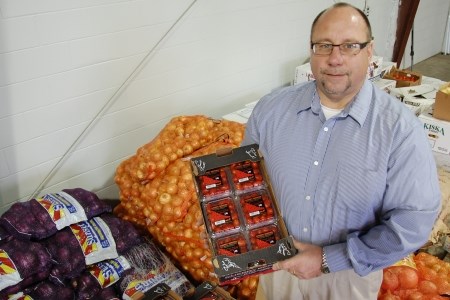Despite the recent recession, the lending climate for small businesses in Northern Ontario has retained much of its strength and is continuing to grow stronger, according to local entrepreneurs and lenders.
One example of this vitality can be found in Sudbury, where the recent Vale strike was a second punch to the gut for many local businesses. This included Harvest King Produce, whose president Chris Cormier purchased $400,000 worth of new vehicles just two years prior to bolster his ability to buy goods in southern Ontario for resale to local restaurants, hotels, institutions and grocery stores.
After consumer spending dropped and clients began to lag as much as four months with their payments, Cormier began looking at ways to work past the cash-flow crunch.
As part of his solution, he sought to stretch his services in early 2010 by making deliveries in other Northern areas such as North Bay, though his transition required some financing. To his surprise, banking and lending institutions were sympathetic to his needs and reacted quickly, enabling him to expand and renovate his 12,000-square-foot warehouse.
“The climate for financing is actually not bad and I think if you have a proven track record, people are willing to help you out through some tough times,” says Cormier.
“I showed them my turnaround strategy, what my plans were with expanding geographically and looking at these other accounts. They agreed with my plan and we went forward, and everything’s been smooth sailing since then.”
Things have since been so successful for Cormier that he’s expanded even further north, making twice-weekly deliveries to Timmins, Hearst and Kapuskasing.
He now services more than 40 Subway Restaurants across northeastern Ontario.
Cormier credits some of this to his positive experience with the Business Development Bank of Canada (BDC), with whom he’d been a client as a partner in a series of gas station and grocery businesses in northern British Columbia before buying Harvest King in 2002.
For some lenders like the BDC, lending opportunities are as viable now as they were five years ago, says Tim Whalen, district manager of business development at the Sudbury branch of the BDC.
The last 18 months have seen a “very marked increase” in businesses seeking funding and direction from the BDC, due in no small part to the current strength of the lending climate, says Whalen.
These have included “every type of business imaginable, from A to Z,” he says, leading groups like the BDC to come up with new and creative ways to accommodate industry needs.
For the BDC, this included offering a onetime term loan to existing clients, a shot in the arm which saw a “dramatic” uptake.
Overall, the experience of the recession can be a positive one for small businesses, who should use this time to take stock and revisit their short-term strategic plan, using the knowledge they’ve gained by surviving their hardships, says Whalen.
This will allow them to pick out efficiencies and innovations needed to create a more “lean” operation, which in turn will make them more attractive to investment.
“Now is the time. While things are quiet, you have the opportunity to consider where your business can go from here.”
Mary Long-Irwin, executive director of the Northern Ontario Enterprise Gateway (NOEG), agrees with Whalen, arguing that the economic times don’t necessarily mean negative things for those seeking financing.
Having taken over from founding executive director Jim Noble last fall after years of heading up the Thunder Bay Chamber of Commerce, Long-Irwin has overseen the recent successes of the federally funded angel investment group.
When worthy business applicants approach NOEG and have been adequately vetted, Long-Irwin matches them up with appropriate potential investors, who then carry on the conversation. If successful, investors will contribute cash and knowledge in exchange for a piece of the business.
In the last year, NOEG facilitated 12 such deals worth approximately $8 million across a range of businesses spanning pharmaceutical firms to supply businesses to footwear inventors. This will lead to the eventual creation of nearly 100 jobs across the North, says Long-Irwin.
“Other angel investment groups in other parts of the country like northern Quebec have asked how we’ve been so successful, but really, success has been a testament to our diversified economy in the North,” says Long-Irwin. “It takes months to make these deals happen, but good working partnerships are worth the effort, and those opportunities are plentiful in the North.”
These numbers show that the appetite for angel investment in the region is much better than it was even prior to the recession, says Long-Irwin, who adds that more and more people are coming forward as potential investors.
To qualify as an angel investor under NOEG, individuals must have a net worth greater than $1 million; this level of personal success is also key as investors will also act as mentors, offering their experience and expertise. What’s more, this investment also creates a sense of lessened risk among other investment sources such as banks, thereby greasing the wheels for additional funding.
To date, NOEG has built up a database of such investors throughout every corner of Northern Ontario, either on an individual basis or through existing groups such as Thunder Bay’s Ambassadors Northwest.
In the future, Long-Irwin hopes to add a specific First Nations focus to NOEG, working in coordination with band councils and the Northern Ontario Heritage Fund Corp. to support business growth in that particular sector of the region’s population.




